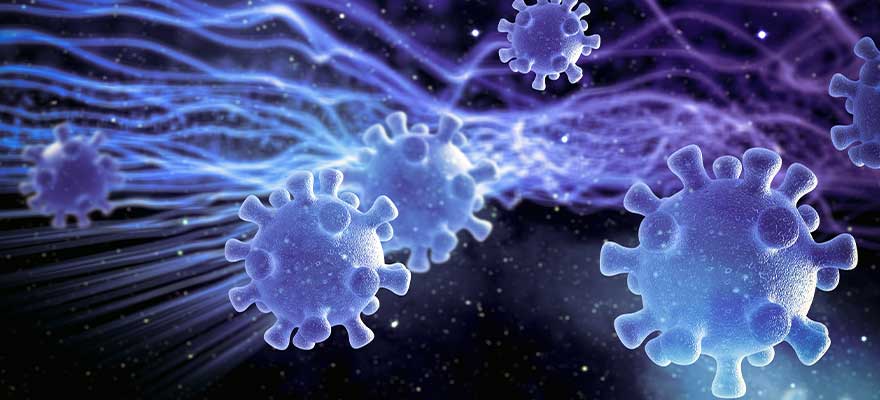Neurological Long-Covid Consequences: Transcranial Pulse Stimulation as a Treatment Option
More and more studies are revealing that the after-effects of COVID-19 infection have an impact on brain function
Since 2020, we have been facing the consequences of the Corona virus and all its variants. And it seems that we will have to learn to live with such viral diseases in the future. More and more studies are investigating the consequences of corona diseases and resulting long covid syndromes. At the top of the list, unfortunately, are the effects on our brains. Around 80% of those affected suffer from neurological symptoms such as concentration disorders, depression, word-finding problems, the so-called “brain fog” and chronic fatigue syndrome (CFS). In the meantime, science has given these long-covid syndromes their own name: Neuro-Covid.
Long Covid: After severe illness, mental disorders last longer than expected
Depression, sleep and anxiety disorders are among the most common long-term consequences of corona infection, along with possible dementia-related syndromes. This was now published by the team led by Unnur Anna Valdimarsdóttir of the University of Reykjavik as part of the COVIDMENT project from Iceland, which is investigating the consequences of the Corona pandemic in the northern states of Europe. To this end, 247,249 participants were interviewed from seven prospective cohort studies conducted in Denmark, Estonia, the United Kingdom, Iceland, Norway, and Sweden on COVID-19 or other issues. Respondents COVID-19 patients reported depression at 20.2% compared with more than 11.3% of study participants:who did not have COVID-19. Sleep disturbances were also more common, with a prevalence (incidence of illness within a defined time period) of 29.4% versus 23.8%.
Before the study began, the researchers:inside had assumed that those affected would suffer more frequently from mental symptoms but would recover from them over time. They were right in the first assumption, but not in the assumption that “time heals all wounds. Patients who had been bedridden for more than seven days continued to complain of depression and anxiety after six to 16 months and are still suffering from the consequences today.
It is still unclear what other long-term consequences COVID-19 has for the psyche of the sufferers. In addition to direct effects that could result from a concomitant brain disease, the uncertainties triggered by the unknown further course of the pandemic and resulting from the restrictions on daily life are not likely to be without consequences, the German Medical Journal wrote in its March 15, 2022, issue on the subject.
Cortical atrophy: COVID-19 may also lead to changes in brain structure
This, in turn, was found by a research group at the University of Oxford, England, whose recent study results have now been published in the journal NATURE. They discovered a reduction in gray matter (cortical atrophy) in certain brain regions, with the limbic system in particular appearing to be affected.
Using data from magnetic resonance imaging (MRI) scans, the study team examined brains of 785 people, aged 51 to 81, each of whom had two brain scans. The first scans were a mean of three years old and were taken before the COVID-19 pandemic. 401 of those individuals had since experienced Corona infection. In contrast, 384 other individuals matched in age, sex, and ethnicity to those affected were placed as a control group.
Those previously affected with COVID showed greater reduction of brain gray matter in the orbitofrontal cortex (the cerebral cortex area in humans located just above the eye socket (orbit) at the front of the skull; it is part of the prefrontal cortex) and in the parahippocampal gyrus – which is a turn of the cerebral cortex. It is part of the limbic system, contributes to memory processes and plays an important role in visual recognition.
Evidence of tissue damage could also be detected in regions whose function is linked to the primary olfactory cortex (the part of the brain responsible for smelling). Participants with SARS-CoV-2 infection also had greater brain size reduction. They also had greater cognitive decline between the two respective MRI exams. The study authors suggest that further research should evaluate whether these changes could be at least partially reversed.
Transcranial Pulse Stimulation (TPS) and Long-Covid: Another Therapeutic Option?
Within the Alzheimer’s dementia therapy-TPS community of interest, long-covid with neurologic sequelae is already a major topic. The physicians:inside working with Transcranial Pulse Stimulation (TPS) and researching scientists:inside see also here good chances to support the brain with its regeneration with the TPS shock waves. A study from January 2022 could already prove that the use of TPS can alleviate depression in dementia patients, which associates that depression of other causes is also an indication for Transcranial Pulse Stimulation. Some users have already started these treatments as an “off-label-use” therapy and are experiencing very good results, which will be published separately in due course.
As far as the reduction of gray matter is concerned, which the new study of the University of Oxford describes, this is also a starting point for Transcranial Pulse Stimulation (TPS): Brain atrophy, i.e. a loss of brain tissue, especially of the cerebral cortex, is also called cortical atrophy. Since the cerebral cortex consists of gray matter, there is a reduction of gray matter.
Again, research conducted by the University Department of Neurology, Medical University of Vienna, in 2021 has already confirmed that TPS can reduce cortical atrophy. More information can be read here: https://www.alzheimer-germany.com/news/general/tps-reduced-cortical-atrophy
Sources:
Lancet Public Health (2022; DOI: 10.1016/ S2468-2667(22)00042-1)
Link: https://www.thelancet.com/journals/lanpub/article/PIIS2468-2667(22)00042-1/fulltext
Nature (2022, DOI: 10.1038/s41586-022-04569-5)
Link: https://www.nature.com/articles/s41586-022-04569-5


